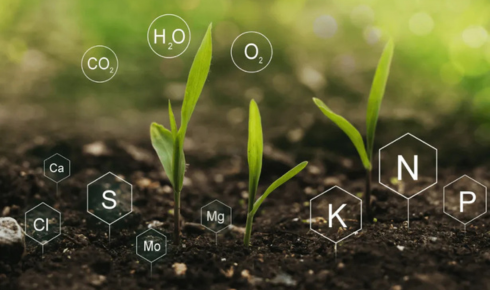Climate change is reshaping the way farmers grow food around the world. Rising temperatures, irregular rainfall, and changing soil conditions are putting immense pressure on agriculture to adapt quickly. In this new environment, the health of the soil and the efficient delivery of nutrients have become more important than ever. One of the most effective ways to strengthen crops against these challenges is through the use of chelated micronutrients. These nutrients not only help improve crop growth but also make farming systems more resilient to the effects of climate change.
Why micronutrients matter in modern farming
Crops need more than just nitrogen, phosphorus, and potassium to grow well. Micronutrients like zinc, iron, manganese, and copper play vital roles in plant metabolism, enzyme activity, and overall growth. Even though they are required in small quantities, their absence can significantly affect plant performance, yield, and quality.
However, due to factors such as intensive farming and soil degradation, many agricultural lands today are deficient in these essential elements. This is where chelated forms of micronutrients come in. They help maintain nutrient availability even under difficult soil and climatic conditions. The chelation process protects nutrients from reacting with other compounds in the soil, ensuring that plants can absorb them efficiently.
Chelated micronutrients and climate resilience
As climate patterns become less predictable, maintaining nutrient balance in the soil has become a major challenge. Heavy rains can wash away nutrients, while dry spells make it harder for roots to absorb them. Chelated micronutrients provide a stable and efficient solution to these issues.
For instance, Fe EDTA, a chelated form of iron, remains soluble and available to plants even in alkaline or calcareous soils. This stability ensures that iron deficiencies, which often lead to yellowing leaves and poor chlorophyll formation, are corrected quickly. The result is healthier plants that can better tolerate heat, drought, and other environmental stresses.
Chelated micronutrients also support photosynthesis, root growth, and flowering, all of which contribute to a plant’s ability to recover from unfavorable weather. In regions facing water scarcity or irregular rainfall, the consistent nutrient availability provided by these formulations can make a significant difference in maintaining crop productivity.
The best micronutrients for plants under stress
Not all nutrients behave the same way under changing climatic conditions. Zinc and iron are particularly important in building climate resilience. Zinc helps in enzyme activation and protein synthesis, while iron supports photosynthesis and energy transfer. Both are often lacking in soils that are exposed to extreme weather or poor irrigation.
Using the best micronutrients for plants, especially in chelated form, ensures that crops have access to essential nutrients even when environmental conditions are unfavorable. This leads to stronger root systems, better flowering, and higher resistance to diseases and temperature fluctuations.
Chelated fertilizers are also compatible with modern farming techniques such as drip irrigation and foliar sprays. This allows for targeted nutrient delivery, reducing wastage and ensuring maximum absorption.
How Indian manufacturers are supporting the transition
As farmers shift toward climate-smart agriculture, fertilizer companies are developing new formulations that support sustainable productivity. Indian manufacturers are leading this change by creating fertilizers that combine chelated micronutrients with macronutrients for balanced nutrition.
Companies like ACI Company are contributing to this effort through continuous research and innovation. By producing high-quality chelated fertilizers that perform well across different climates and soil types, they are helping farmers adopt more resilient and sustainable practices. These solutions are designed not just for high yield but also for long-term soil health, ensuring that farmlands remain productive in the years ahead.
A step toward a sustainable future
Building climate resilience in agriculture is not just about protecting yields today but also about securing food for the future. The use of chelated micronutrients represents a smart and sustainable approach to farming that meets both goals. By ensuring steady nutrient availability and improving plant tolerance to stress, these fertilizers are helping farmers around the world face climate challenges with confidence.
With continued innovation from fertilizer producers and greater awareness among growers, chelated micronutrients like Fe EDTA will continue to play a key role in sustainable and climate-resilient agriculture. Farmers who invest in these advanced formulations are not only improving their current harvests but also preparing their soil and crops to thrive in a changing world.

